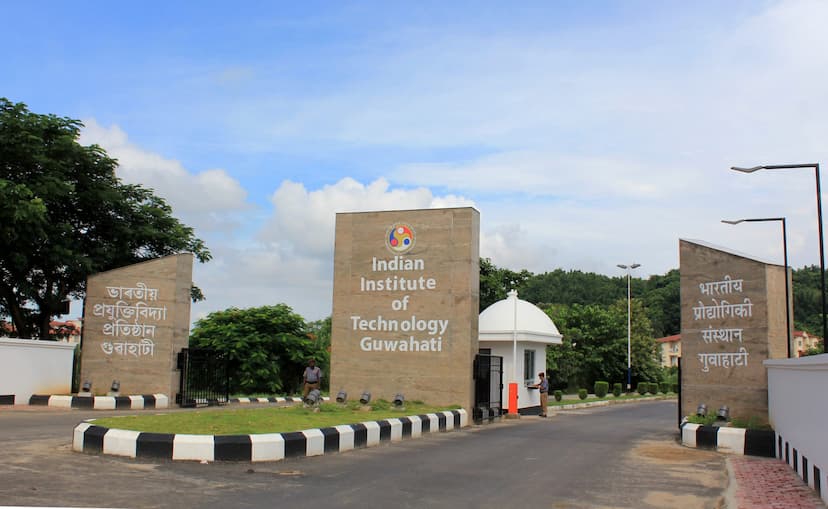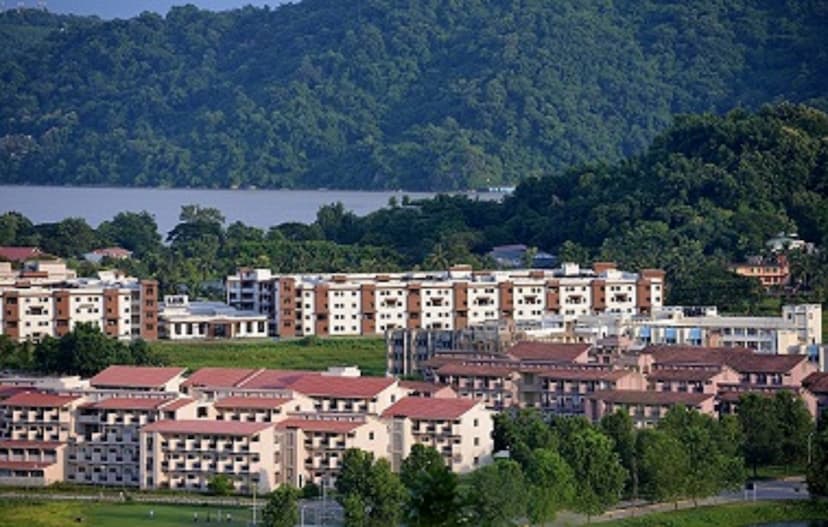IIT Guwahati researcher develops great low-cost technology

IIT Guwahati researcher has again made waves by bringing out low-cost technology to produce psychoactive drugs and anti-aging compounds from agricultural resources.
IIT Guwahati researcher developed a low-cost membrane technology to produce psychoactive drugs and anti-aging compounds from wide range of agricultural resources like camellia sinensis, citrus fruits and peels especially orange peels, berries, ginkgo biloba, parsley, pulses, tea, sea buckthorn and onions.


The health-related benefits of psychoactive drugs (caffeine) and anti-aging compounds (flavonoids) attributed to stimulating detoxification of enzyme activity and inhibition of cell invasion and angiogenesis, says IIT Guwahati researcher.
‘Because of medicinal applications, flavonoid components have gained popularity as ingredients in pharmaceutical industry.’
These are also found in smaller amount in bamboo leaves, grapes, apples, and other natural sources, says IIT Guwahati researcher.

Speaking about the technology, IIT Guwahati researcher Professor Mihir Kumar said the developed technology is exclusively pore/particle size based pressure driven membrane separation process.
The water extracts of above mentioned plants/fruits/leaves at optimum operating conditions are passed through a specially made cascade membrane units of fabricated with appropriate molecular weight cut off (MWCO) membranes capable of separating targeted flavonoids selectively, said IIT Guwahati researcher.
IIT Guwahati reseacher further said permeate and retentive part from appropriate membrane unit is then fridge dried to get the powdered product.

We have synthesized stimuli responsive smart membrane for the selective separation and purification of targeted compound from the mixture of plants or leaves or fruits extract in simple water, said IIT Guwahati researcher Professor Mihir Kumar.
The commercially available techniques are using various costly organic solvents like: Chloroform, Acetone, Acetonitrile etc.
As a result the price of these important pharmaceutical raw materials are quite high that ultimately increases the price of the antioxidant.

Since organic solvents are used, the technology suffers various disadvantages like: low product quality and yield, high operating and product cost, more time consuming and high energy intensive process for solvent recovery and has limitation to run continuation mode in industrial scale, says IIT Guwahati researcher.
The technology developed by IIT Guwhati researcher Professor M.K. Purkait doesn’t require any costly organic solvents and uses only water.
Hence, the cost of the process and price of pharmaceuticals thereon is much cheaper than that of existing solvent based separation technique.
The patented membrane based green technology has enormous scope to replace existing costly organic solvent based techniques and can be used for continuation mode of operation in industrial scale.

Worldwide, there are very few manufacturers of flavonoids produced using solvent based technique having less purity (40-80%) and high price.
It has been estimated that the global market for flavonoids is expected to reach about 412.4 MT by 2022 from 347.8 MT in 2017 reported in the Ministry of Commerce, Government of India’s Import-Export current statistics.
The developed technology by IIT Guwahati researcher will support “Make in India” initiative of the Government of India by producing these compounds in the country.
This technology brought out by IIT Guwahati researcher is expected to reduce the import of said polyphenolic compounds.
Implementation of the said technology will also create job opportunities in agriculture sector of the country.
Indian Institute of Technology (IIT) Guwahati established in 1994 has completed 25 years of glorious existence in 2019.
At present, the Institute has eleven departments and five inter-disciplinary academic centres covering all the major engineering, science and humanities disciplines, offering BTech, BDes, MA, MDes, MTech, MSc and PhD programmes.
The Institute offers a residential campus to 412 faculty members and more than 6,000 students at present.
Besides its laurels in teaching and research, IIT Guwahati has been able to fulfil the aspirations of people of the North East region to a great extent since its inception in 1994.
The picturesque campus is on a sprawling 285 hectares plot on the north bank of the Brahmaputra, around 20 kms from the heart of the Guwahati city.
IIT Guwahati is the only academic institution in India that occupied a place among the top 100 world universities – under 50 years of age – ranked by the London-based Times Higher Education (THE) in the year 2014 and continues to maintain its superior position even today in various International Rankings.
The Institute has been ranked at 6th position in ‘India Overall Rank’ and 350th position under the ‘World Overall Rank’ categories released by Nature Index for the year 2020.
Along with the seven other institutes, IIT Guwahati has been ranked below 500 in the QS World ranking released recently.

Among other frontier areas of research and innovation, IIT Guwahati is working towards augmenting critical science research initiatives in Genomics, Developmental Biology, Health Care and Bioinformatics, Flexible Electronics, Advanced Functional Materials, Sustainable Polymers, Rural Technologies, Disaster Resilience and Risk Reduction and Water Resources and Management.
IIT Guwahati is poised to scale newer heights through all round growth and development.
S Vishnu Sharmaa now works with collegechalo.com in the news team. His work involves writing articles related to the education sector in India with a keen focus on higher education issues. Journalism has always been a passion for him. He has more than 10 years of enriching experience with various media organizations like Eenadu, Webdunia, News Today, Infodea. He also has a strong interest in writing about defence and railway related issues.






